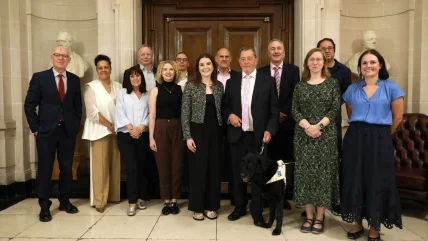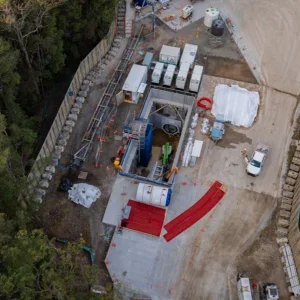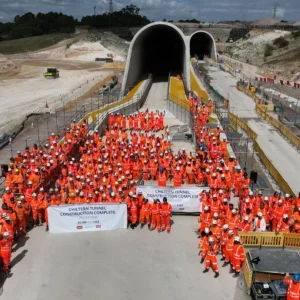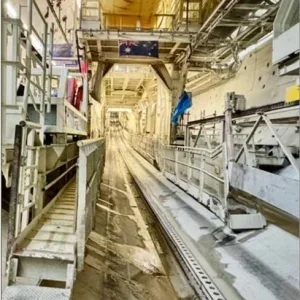
A taskforce has been set up to help the Lower Thames Crossing meet its low-carbon targets, with a focus on new jobs, skills and business opportunities for local communities.
National Highways says the Lower Thames Crossing Skills Taskforce, which will be chaired by former home secretary Lord Blunkett, will help tackle local and industry skills shortages and develop the green skills needed to deliver the Lower Thames Crossing and support the move to decarbonise the UK’s construction industry.
“The Skills Taskforce will help the project meet its ambitions by providing advice and direction, embedding a culture of transparency, and challenging it on targets and progress,” National Highways said.
The group includes local authority councillors and representatives from local education providers, business groups and trade unions.
The project’s Skills Strategy outlines its skills targets including the number of graduates, apprentices, and work experience placements, as well as the number of training opportunities and hours pledged to support local teachers and students. The strategy sets out how priority groups, including prison leavers, the long-term unemployed and women returning to work, will be given support to develop the necessary skills and access opportunities for jobs.
The Lower Thames Crossing, which will include the UK’s longest road tunnel, was granted planning permission in March. The twin 4.1km-long tunnels will link the A2 in Kent with the A13 and M25 in Essex.
In December 2023 Bouygues Travaux Publics – Murphy Joint Venture (BMJV) was awarded the Lower Thames Crossing Tunnels and Approach contract.
The project has been designated a Pathfinder project that is exploring and scaling-up low-carbon construction methods and materials. Its plans include buying British transport’s largest ever volume of green hydrogen to help it be diesel free by 2027, and kick starting the development of a hydrogen ecosystem in the Thames Estuary.
The project will create a local workforce by employing at least 45% of the workforce from within 32km of the route and at least 20% from the most impacted boroughs, and will spend at least £800m with SMEs, said National Highways.
The project plans to open Skills Hubs in areas along the new route. A pilot scheme delivered with Gallagher Group and Flannery Plant Hire in Kent last year led to every participant being employed in the construction industry.
Lord Blunkett said major infrastructure projects like the Lower Thames Crossing were not just about what was built.
“They have the power to transform lives by providing meaningful, long-term opportunities for people from all walks of life. I’m honoured to serve as skills adviser to the project and to chair the Skills Taskforce. This independent group, made up of education leaders, trade unions, industry experts, MPs, and council leaders, will hold the project to account, test progress, and challenge the project to go further,” he said.
Lower Thames Crossing executive director Matt Palmer said the project was a once-in-a-generation opportunity to build something far greater than a road.
“It’s our chance to invest in the new green skills needed to build the Lower Thames Crossing and help to close the gap on the construction industry’s skills shortage. Drawing on Lord Blunkett’s experience and influential local and industry leaders, we can also make a real difference within the communities around the project through new work, jobs, skills and education and build a workforce ready for the challenges of tomorrow,” he said.







